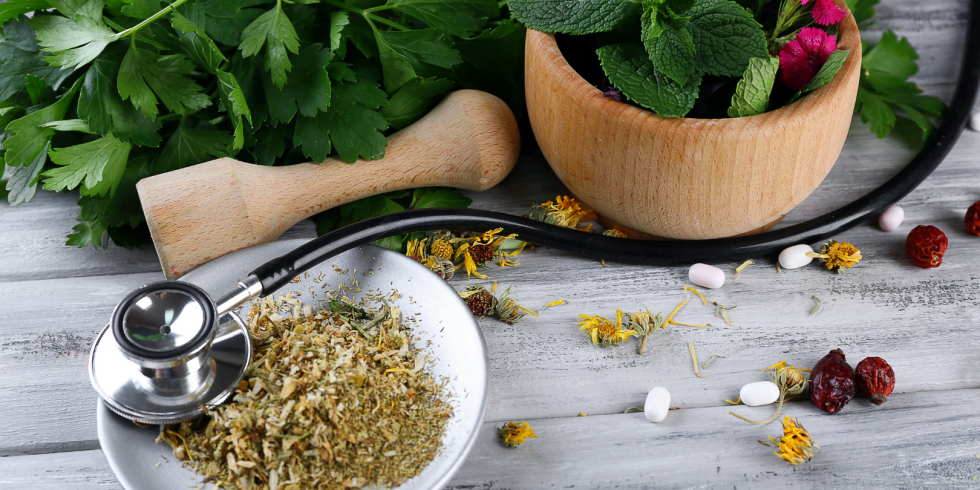Tips for Managing MCAS During the Winter Holidays
Managing Mast Cell Activation Syndrome (MCAS) can be challenging, especially during the winter holidays. This condition causes your mast cells, a type of white blood cell, to release too many chemicals like histamines, leading to symptoms such as itching, swelling, and digestive issues. The holiday season often brings stress, dietary changes, and exposure to various triggers, making it harder to control symptoms.
Finding a functional medicine doctor who focuses on finding and fixing the core root cause of these symptoms is essential to help you heal. Finding the right strategies can ensure you enjoy the holidays without compromising your health. Let's explore some effective ways to manage MCAS during the winter holidays.
Understanding Mast Cell Activation Syndrome (MCAS)
Mast Cell Activation Syndrome (MCAS) is when the body's mast cells release excessive amounts of chemicals, such as histamines, cytokines, and other inflammatory agents. Mast cells play a vital role in your immune system by defending against pathogens. However, in MCAS, these cells become overactive, causing symptoms that can affect various body parts. Common symptoms include skin rashes, digestive problems, difficulty breathing, and neurological issues like headaches and anxiety.
Triggers for MCAS can vary, ranging from certain foods and environmental factors to stress and temperature changes. Understanding your specific triggers is crucial for managing this condition effectively. Keeping a detailed symptom diary can help identify patterns and triggers. This record can then be used to take proactive steps to avoid these triggers, especially during the holidays when routines and environments often change.
Finding a functional medicine doctor who focuses on finding and fixing the core root cause of these symptoms is vital to helping you heal. With the right guidance, you can learn to manage your symptoms better and improve your quality of life.
Dietary Tips for Managing MCAS During the Holidays
Managing your diet is essential for controlling MCAS symptoms. The holidays can present challenges with numerous food temptations and changes in eating habits. However, with a few simple tips, you can enjoy the season while keeping your symptoms under control:
- Stick to Safe Foods: Identify which foods trigger your symptoms and avoid them. Stick to a diet that includes safe, non-triggering foods you can tolerate. Fresh fruits, vegetables, and lean proteins are generally safe choices.
- Read Labels Carefully: When attending holiday parties or events, read food labels or ask about ingredients. Many processed foods contain additives or chemicals that can trigger MCAS symptoms.
- Eat Smaller Meals: Large meals can trigger symptoms. Eating smaller, more frequent meals can help manage digestive issues and prevent system overload.
- Stay Hydrated: Drink plenty of water throughout the day. Staying hydrated helps your body function optimally and can reduce the severity of symptoms.
- Carry Snacks: When traveling or attending gatherings, bring your snacks. This ensures you have safe options and avoid tempting but risky foods.
By carefully managing your diet and being mindful of what you eat, you can enjoy the holiday season without suffering from debilitating MCAS symptoms.
Stress Management Techniques for MCAS
Stress is a significant trigger for MCAS symptoms, especially during the busy holiday season. Managing stress effectively can make a big difference in controlling your symptoms. Here are some stress management techniques that can help:
- Mindfulness and Meditation: Practicing mindfulness and meditation can help calm your nervous system. Spend a few minutes each day focusing on your breath and being present in the moment. Apps and online tutorials can guide you through simple meditation exercises.
- Routine and Rest: Try to maintain a consistent routine, even during the holidays. Prioritize getting enough sleep and rest. Lack of sleep can increase stress levels and worsen MCAS symptoms. Establish a calming bedtime routine to improve sleep quality.
- Physical Activity: Gentle exercise like walking, yoga, or stretching can reduce stress and improve overall well-being. Choose activities that you enjoy and that do not exacerbate your symptoms. Regular physical activity helps release endorphins, improving your mood and reducing stress.
- Deep Breathing: When feeling overwhelmed, take a moment to practice deep breathing exercises. Inhale deeply through your nose, hold for a few seconds, and then exhale slowly through your mouth. This can quickly reduce stress and help you feel more centered.
Incorporating these techniques into your daily routine can help you manage stress more effectively, which in turn helps control MCAS symptoms.
Navigating Holiday Gatherings with MCAS
Holiday gatherings pose challenges for those dealing with MCAS. Planning and taking specific steps can help you enjoy these events without triggering symptoms. Here are practical tips for navigating holiday gatherings:
- Communicate Your Needs: Inform your host about your condition and any dietary restrictions. This will help them understand your needs and better accommodate you. Bring your own safe food to ensure you have something you can eat without worry.
- Plan Ahead: Before attending an event, eat a small meal at home that you know is safe. This ensures you won't be too hungry and tempted to eat foods that could trigger your symptoms. Stay hydrated by drinking plenty of water before and during the event.
- Create a Calm Environment: If you feel overwhelmed or stressed, find a quiet space to relax and practice deep breathing or meditation. If loud noises trigger you, carry earplugs or noise-canceling headphones.
- Limit Alcohol and Caffeine: Alcohol and caffeine can exacerbate MCAS symptoms. Choose alternatives like herbal teas or water to stay hydrated and avoid potential triggers.
By taking these steps, you can enjoy holiday gatherings with less worry and better control over your MCAS symptoms.
Conclusion
Managing MCAS during the winter holidays requires careful planning and mindful practices. By understanding your condition and using dietary strategies, stress management techniques, and proactive planning, you can significantly reduce the impact of triggers. This approach helps you enjoy the festive season without compromising your health.
It is important to find a functional holistic doctor in Austin who focuses on finding and fixing the core root cause of these symptoms to help you heal. At Infinity Wellness, located in Waxahachie, TX, we specialize in holistic, root-cause care tailored to your unique health journey. Serving both local and nationwide patients through in-person and virtual services, we offer comprehensive programs to address conditions such as hormonal imbalances, chronic fatigue, and digestive issues. Our goal is to help you achieve long-term wellness and vitality. Ready to transform your health? Book an appointment here - Our Holistic Approach to Wellness - Infinity Wellness Center.



